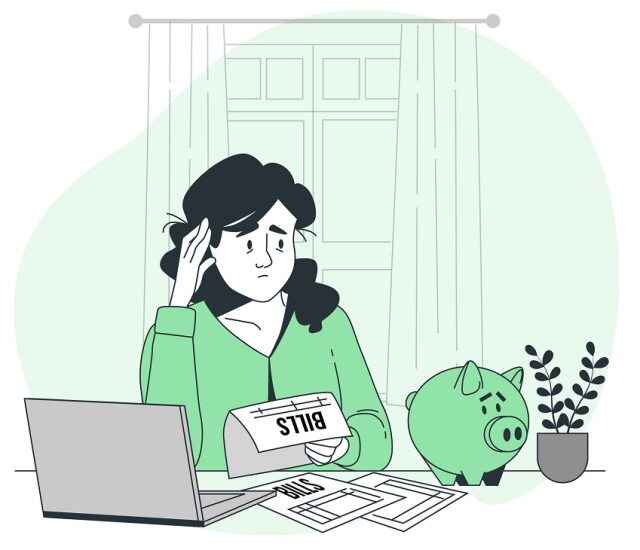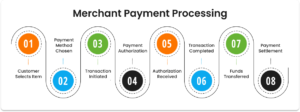Graduating is a big milestone, but it also comes with the responsibility of repayment in case you had taken an education loan. Managing your loan effectively is key to avoiding default, which can negatively impact your credit score and future financial opportunities.
Lets see some practical tips to help you stay on top of your payments and build a strong financial future.
What Is Loan Default in Education Loans?
First, let’s understand what a Loan Default means.
Loan default on an education loan happens when you’re unable to make repayments as agreed with the lender. This often occurs after missing several payments, typically following the grace period provided during your studies.
Defaulting can harm your credit score, limit access to future loans, and may result in legal action or the loss of collateral.
Common Reasons for Education Loan Default
- Unemployment or Low Income: Difficulty finding a well-paying job can make it hard to meet repayment obligations.
- Poor Financial Management: Lack of budgeting or prioritizing other expenses over loan repayments can lead to missed payments.
- High Loan Amounts: Borrowing more than necessary results in unaffordable EMIs, especially with a lower income.
- Rising Interest Rates: Unexpected increases in floating interest rates can strain monthly repayments.
- Medical or Personal Emergencies: Unforeseen events may divert funds away from loan payments, leading to defaults
7 Effective Ways to Avoid Defaulting on Your Education Loan
Here are 7 strategies that you can implement to avoid defaulting on your education loan:
1. Reach Out to Your Lender
If you miss a payment, contact your lender immediately. Many banks are open to negotiating and may offer options like extending your loan term or adjusting payment schedules.
2. Consider Loan Restructuring
If finances are tight, inquire about restructuring your loan. This could mean reducing your monthly payments or securing a temporary break from principal repayments.
3. Consolidate Your Loans
If you have multiple loans, consolidating them into one can simplify your repayment process and sometimes provide better terms.
4. Consult a Financial Advisor
Getting advice from a financial expert can help you plan how to manage your finances better, create a repayment strategy, and get back on track.
5. Look Into Government Support
Explore government-backed initiatives or programs that might offer relief for education loan defaulters, such as the Credit Guarantee Fund.
6. Repay as Soon as You Can
Making partial payments, even if you can’t pay in full, is a good way to show your lender you’re committed to repaying, which may prevent further penalties.
7. Don’t Ignore the Issue
Ignoring a default can lead to higher penalties, interest, and a damaged credit score, which could impact your future finances. The sooner you take action, the better.
By taking swift, responsible steps and staying in touch with your lender, you can work through a loan default and get back on track financially.
Looking to pursue an MBA? Explore our MBA Education Loan options with flexible terms and support, helping you manage your repayment effectively and avoid financial setbacks.
.
Why Propelld?
The following are the primary benefits of Propelld.
| Particulars | Details |
| Max Loan Amount | 50 Lakhs |
| Collateral | Not Required |
| Moratorium | Available |
| Processing Time | 10 Times Faster than Banks |
| Disbursal Time | 7 Days |
| Approval Rate | Higher than Other Banks |
| Special USP | Marks Based Approval |
| % Financed | 100% of Fees |
FAQs on how to avoid defaulting your education loan
- What happens if I default on my education loan?
Defaulting can negatively impact your credit score, and the lender may take legal action to recover the loan amount, including wage garnishment or asset seizure. - How can I ensure I don’t default?
Stay on top of your loan payments, create a realistic repayment plan, and consider options like deferrals or income-driven repayment plans if you’re struggling. - What should I do if I miss a payment?
Contact your lender immediately. They may be able to help by offering a forbearance or extending your repayment term. - Can I renegotiate my loan terms?
Yes, in many cases. If you’re experiencing financial difficulty, reach out to your lender to discuss modifying the terms, such as extending the repayment period or lowering the interest rate. - Should I consider loan consolidation or refinancing?
Consolidating or refinancing can help reduce your monthly payments by combining loans into one or securing a lower interest rate. However, it’s essential to understand how these options might affect your loan terms and repayment. - What are deferment and forbearance?
Deferment allows you to temporarily postpone payments, while forbearance lets you reduce or delay payments due to financial hardship. Be aware that interest may still accrue during these periods. - Are there any programs that help with education loan repayment?
Some federal programs, employer-sponsored initiatives, and scholarships may assist with repaying education loans, especially in specific professions or public service jobs.
- How can I prevent missing a payment?
Set up automatic payments or reminders on your phone or calendar to ensure you never miss a due date. Paying on time is one of the best ways to keep your loan in good standing. - What should I do if I lose my job or face financial hardship?
If you’re facing financial trouble, reach out to your lender immediately. Many lenders offer temporary forbearance or income-driven repayment options to help ease the burden during tough times. - Can loan forgiveness programs help?
Certain public service jobs may qualify for loan forgiveness after a set period. Research these programs and make sure to apply if you’re eligible. - How do I keep track of my loan and payments?
Use online portals or apps provided by your lender to track your loan balance and repayment status. Being aware of where you stand can help you stay ahead and avoid falling behind. - What if I can’t afford my monthly payments?
If your monthly payments are too high, explore options such as loan consolidation, income-driven repayment plans, or refinancing. These options can help reduce your payments or spread them out over a longer period. - Does the type of loan affect my repayment options?
Yes, federal loans typically have more flexible repayment options, including Income-Driven Repayment (IDR) plans, while private loans may offer fewer options. Always check with your lender for available solutions. - Can making extra payments help?
Yes, making extra payments, even small ones, can help you pay down your loan faster, reducing the interest you’ll pay over time and shortening the loan term. - Are there any tax benefits for paying off education loans?
In some countries, you may be able to claim tax deductions for interest paid on student loans. Check with a tax professional to see if this applies to you.
What’s the difference between deferment and forbearance?
Deferment and forbearance are both options for temporarily postponing or reducing loan payments, but deferment often applies to federal loans and may not accrue interest during the break. Forbearance typically applies to private loans and interest usually continues to accumulate.
Can I change my repayment plan if I’m struggling?
Yes, many lenders allow you to change your repayment plan. Switching to an income-driven plan or extending the loan term can reduce your monthly payments, making them more manageable.
What should I do if my loan servicer is unresponsive?
If you’re having trouble reaching your loan servicer, document all your attempts and escalate the issue. You can file a complaint with your loan servicer’s customer support or consider contacting a financial advisor for assistance.
How can I stay motivated to pay off my loan?
Setting financial goals, celebrating small milestones, and maintaining a clear understanding of your progress can help you stay motivated. Regularly reviewing your repayment status can remind you of the bigger picture.
Can refinancing help me avoid default?
Refinancing could lower your interest rate and monthly payment, making your loan more manageable. However, it’s important to weigh the pros and cons since refinancing may affect your loan terms, including eligibility for certain forgiveness programs.
What happens if I default on my education loan?
Defaulting on your education loan can have serious consequences, including damage to your credit score, wage garnishment, and losing access to future federal student aid. Always communicate with your lender before missing a payment.
Are there any loan repayment assistance programs?
Some employers and organizations offer loan repayment assistance as a benefit. Explore these programs to see if you can get help paying down your loan faster.
How do I know if my loan is in default?
You’ll usually receive notification from your lender once you miss a certain number of payments (typically 270 days for federal loans). It’s crucial to stay on top of your loan status and contact your lender immediately if you think you might miss a payment.





Be First to Comment